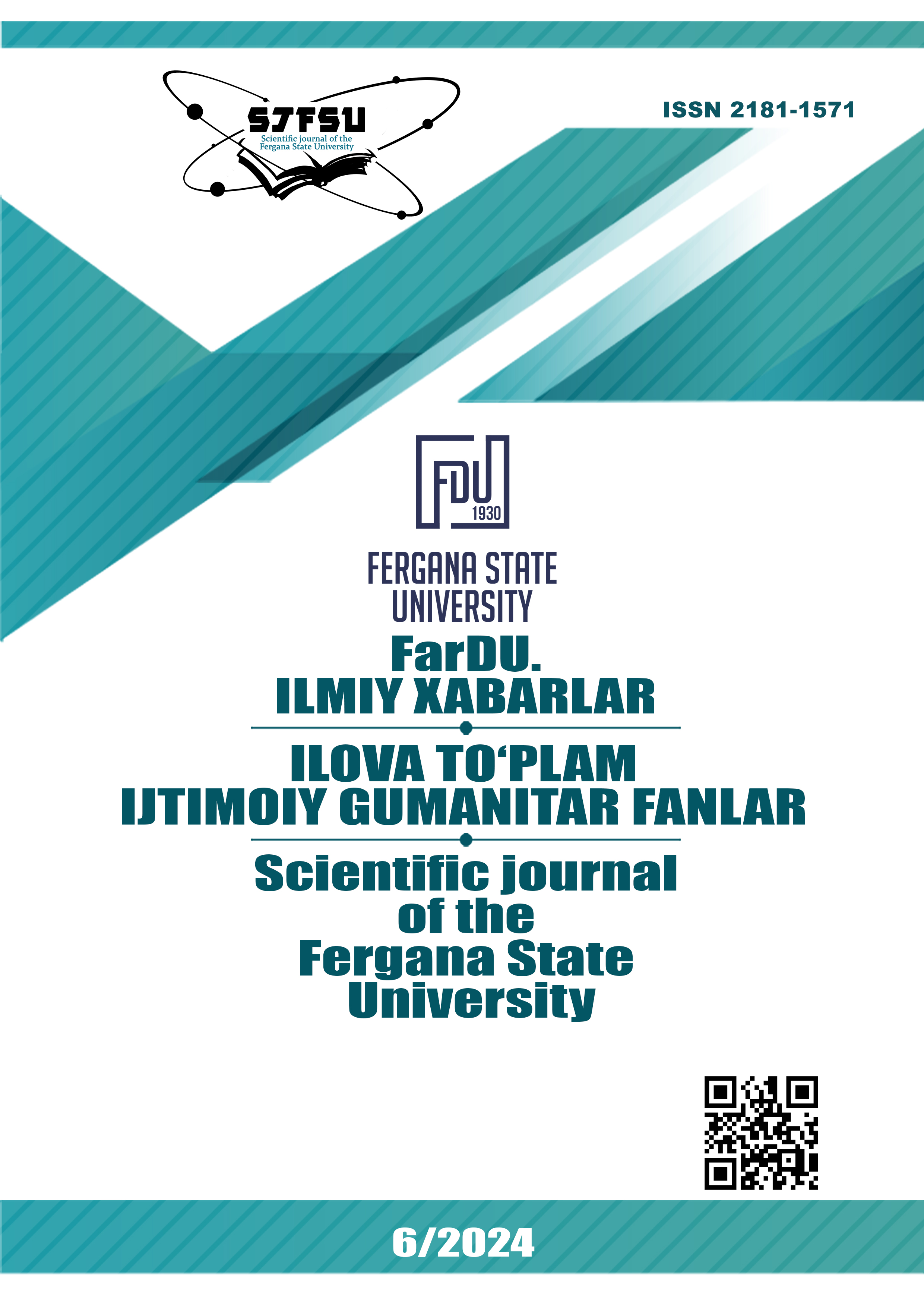THE HISTORY OF ARGOTS’ ORIGIN IN ENGLISH SPEAKING COUNTRIES, RUSSIAN AND UZBEKISTAN
Keywords:
Argot, Criminal slang, Evolution of language, Secret languages, History of argot, Linguistic subcultures, Social identity, Marginalized groups, British cant, RotwelschAbstract
This article explores the genesis and evolution of argot, a specialized form of language used primarily by criminal and marginalized groups for covert communication. The study traces the origins of argot from the 15th century, starting with its early forms such as rotwelsch in Europe and cant in Britain. It examines the development of criminal slang as it spread through Europe, particularly in Britain and its colonies, including Australia, and later influenced other regions such as Russia and Uzbekistan. The research highlights how argot evolved from a secretive communication tool used by criminals into the broader phenomenon of slang, influencing everyday language. The article emphasizes the relationship between language and society, illustrating how socio-economic and political conditions shape the development of criminal language.
References
Barnard S. “Is that bum trap missing a flash-bag?” A guide to Australia’s convict slang. The Guardian. (Accessed September 4, 2019).
Beal J. The history of slang and its development in English. Routledge. 2010
Bernard S. Flash: The criminal language of Australia. University of Sydney Press. 2000
Cohen P. The evolution of cant: The rise of criminal language in Britain. Journal of Linguistic Anthropology, 19(2), 1973. 214-227.
Goetze S. Rotwelsch: A study in early criminal vernaculars. Germanic Linguistic Studies, 16(1), 1993. 36-52.
Grose F. A classical dictionary of the vulgar tongue. Printed for S. Hooper. 1785
Guiraud P. L'Argot. Que sais-je? PUF. 1958
Halliday M. A. K. Anti-languages. American Anthropologist, New Series, 78(3), 1976. 570-584.
Hardy J. The Flash Dictionary. London: The Criminal Press. 1819
Hardy J. A new and comprehensive vocabulary of the flash language. Dodo Press. 2008
Labov W. Sociolinguistic patterns. University of Pennsylvania Press. 1972
Looser D. Boobslang: A lexicographical study of the argot of New Zealand prison inmates, in the period of 1996-2000 doctoral dissertation. University of Canterbury. 2004
Papenhagen F. Russian criminal slang: Dialects of the underworld. Slavic Linguistic Review, 25(2), 102-118. 1999
Partridge E. Slang today and yesterday. Routledge and Kegan Paul. 1933
Quinn K. . The rise of criminal subcultures in 16th-century Britain: Social upheaval and the growth of Cant. Historical Linguistics Journal, 27(4), 2002. 331-345.
Ross A. Criminal speech in early colonial Canada: The influence of British vernacular. Canadian Linguistic Studies, 12(1), 1990. 23-40.
Schmitt H. Rotwelsch and the secret languages of Europe: A linguistic history. European Linguistics Journal, 14(2), 1991. 178-192.
Smith W. The Confession &c. of Thomas Mount. Newport: Printed and sold by Peter Edes. 1791
Sanjay Sarraf. Beyond the walls: A comprehensive look at the history and future of open prisons. ResearchGate. 2023
Thompson M. Slang and society: The evolution of informal speech in the modern world. Cambridge University Press. 2015
Sodiqov H, Jo‘rayev N. Turkiston Chorizm mustamlakachiligi davrida. SHARQ NASHRIYOT-MATBAA AKSIYADORLIK KOMPANIYASI BOSH TAHRIRIYATI TOSHKENT. 2011.
Wells M. The role of argot in South African criminal culture. African Linguistics Journal, 19(3), 1996. 210-225.
Downloads
Published
Issue
Section
License
Copyright (c) 2025 Scientific journal of the Fergana State University

This work is licensed under a Creative Commons Attribution-NonCommercial-NoDerivatives 4.0 International License.

